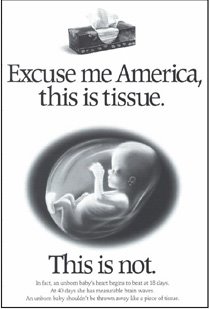Gardasil Vaccine Not The Only Option For Preventing Cervical Cancer
 Vote
Vote
Gardasil Vaccine Not the Only Option for Preventing Cervical Cancer
Last week the Right to Life Association issued a press release outlining its concerns regarding the provincial government’s newly announced HPV Vaccination Program. A small controversy erupted, with many Newfoundlanders quickly adding their viewpoints.
However, in the interests of informed consent for all Newfoundlanders, much more needs to be said about this vaccination proposal which will see 2,800 grade six girls throughout the province immunized from the human papilloma virus (HPV), a virus known to cause many types of cervical cancer. The province will fund the three year program with its allotment of $4.6 million from a $300 million federal total.
At first glance this appears to be quite a beneficial—even marvellous—project. Why not take steps to protect women from a dreaded disease and why not use one more vaccine, among many, in grade school in order to do so? But are there reasons to be skeptical of such a plan? If so, one ought to start first with the most serious concerns, those relating to the health and safety of those women who receive the Gardasil vaccine produced by drug giant Merck Frosst.
According to the U.S. based National Vaccine Information Center (NVIC), among the symptoms and illnesses (2200 reported) of greatest concern associated with Gardasil and reported to FDA’s Vaccine Adverse Event Reporting System (VAERS) are death (seven deaths have been filed) and Guillain-Barre Syndrome (GBS).
In describing GBS, NVIC quotes the National Institute for Neurological Disorders and Stroke: “GBS is a serious disorder in which the body's immune system attacks part of the peripheral nervous system. The first symptoms of this disorder include varying degrees of weakness or tingling sensations in the legs. In many instances, the weakness and abnormal sensations spread to the arms and upper body. These symptoms can increase in intensity until certain muscles cannot be used at all and, when severe, the patient is almost totally paralyzed. … Vaccinations can trigger onset of GBS.”
NVIC insists that the U.S. Center for Disease Control “should immediately issue a public advisory to doctors, parents, and vaccine recipients that Gardasil is associated with 15 reports of GBS in VAERS.” Yet Merck, as well as Canadian federal and provincial officials, have told us nothing about this.
Gardasil has undergone less than four years of testing and relatively few girls (1200) between the ages of 9 – 15 years were involved in the testing. More surprisingly, out of that total, a miniscule number (100) were nine years old. This does not generate a high level of confidence in the short term, or even the immediate, safety of the vaccine. We certainly have no answers about the vaccine’s long term safety, yet Merck (and our provincial government) proposes to make this age group the target population for mass vaccination. It is not surprising then that some have characterized the vaccination program as a huge Canadian experiment with young school girls as the guinea pigs. For example, might one of the side-effects of this vaccine be to render girls sterile at some point in the future?
Regarding the efficacy and costs of Gardasil, some significant difficulties are also posed. Very importantly, it must first be noted that HPV infection does not equate to contracting cervical cancer. The majority of women infected with HPV—even the high-risk variety—will not develop cervical cancer. In no sense does
A group of McGill medical specialists headed up by epidemiologist Abby Lippman will be publishing a summary of their numerous concerns about the Gardasil vaccine later this month in the August edition of the Canadian Medical Association Journal. Lippman states emphatically that there is no such crisis of cervical cancer in
Gardasil shows POTENTIAL to prevent SOME cervical cancer. There are more than 30 types of HPV which can cause cancer and for those women—firstly, who receive Gardasil; secondly, who receive Gardasil before being infected; and thirdly, whose protection by Gardasil is still active and effective [uncertainty prevails on this point]—there is protection against 4 of the most common types which together cause about 70 per cent of cervical cancers. When all is factored in, some believe the vaccine MAY help to prevent less than 17% of cervical cancers. Cancer experts predict that cervical cancer will take the lives of about 390 women this year in
The vaccine is given by means of three injections over a six-month period of time, and is very expensive, costing about $400 per person. The Canadian Women’s Health Network expresses doubt that the benefits of the vaccine justify such a high price tag and suggests that the money be used instead to improve the Pap smear process. Research has strongly and consistently indicated that if every woman were to receive regular Pap smears, cervical cancer in
Further number-crunching raises more doubts—even a startling picture. Reliable indications are that Gardasil’s potency declines significantly after about four years yet cancer data show that the average cervical cancer patient is 47 years of age. If young school children are vaccinated at 9-13 years of age, how many injections or boosters during their lifetime might they need in order to stay protected? The higher the number the better for Merck’s bank account.
The HPV vaccine "touches on very deep sexual, social, ethical values," says Margaret Somerville, Faculty of Medicine professor at
In a society where many outrightly dismiss, are ignorant of, or have abdicated their parental responsibilities for the moral (and sex) education of their children, this standard seems not only utopian but its very suggestion is said to be offensive and intolerable. Nevertheless, the Gardasil message is clear: “Your little girl, as young as nine, will not remain abstinent but will engage in, or is preparing to engage in, sexual activity. She needs to be vaccinated.”
Some have compared the Gardasil campaign to the push to promote condoms, which, in creating a false sense of security about “safe sex,” has resulted in overall increased risk. In the strategy to control the spread of STD’s, condoms have been a failure. “Condoms aren’t enough to do the trick—let’s throw in the Gardasil.”
Furthermore, widespread immunization by government meddles with the right of parents to choose the appropriate time to decide when and how their children will be exposed to the topic of sexuality. Against their better judgment and wishes they are forced to engage in the discussion.
Finally, some misconceptions need correcting.
The federal Health
HPV is not like polio or some other serious, preventable disease treated with a vaccine. HPV is a disease contracted through vaginal, oral or anal sexual intercourse—and only by those means. Your daughter will not catch HPV by sitting next to someone who has it.
Gardasil offers no protection whatsoever against other serious STDs, such as Chlamydia, herpes, gonorrhea, syphilis, HIV, AIDS; nor is it effective against the other more than 26 kinds of HPV.
Provincial Health Minister Ross Wiseman said he believes the vaccination program will do more good than harm. So is he saying that, after spending nearly five million hard earned health dollars to protect women from a cancer causing STD that comes only through multiple partner sex, if 2,800 young girls are vaccinated and some MAY be saved from cervical cancer twenty years or more hence but one or more girls die or are incapacitated after being vaccinated, that the program was a success? Perhaps Merck-Frosst, as well as our politicians, haven’t gone to such depths in their thinking. That possibility is indeed a scary—and dangerous—one.
Labels: abstinence, chastity, politicians, sex education, teenagers, vaccines


























3 Comments:
I guess it escapes your attention (or perhaps you don't care) that many young women are raped every year, and that it is possible to get HPV via other means than sexual contact. In your little slanted, idealistic view of the world, HPV wouldn't be a problem. The reality is quite different, however.
Your statistics about the clinical trials are also erroneous, by the way.
If you're going to advocate for a specific position on something, at least have the gonads to present a balanced view of the subject.
cc,
The discussion is ongoing. If you'd like to present a proper rebuttal of the points made in Vote Life, Canada's report, please go ahead. I'll be happy to post a link to your site.
In the meantime, I'll edit the posting and include links to the sources for the info gathered in the report.
cc,
I notice your blogger profile is no longer accessible.
Readers might be interested to know that caitlainscorner.com hosts an online "Owner's Manual for Sexuality." It's a sex education site that keeps readers, especially pre-teens, adolescents and young adults up to date on today's norms of sexuality including "rough sex" during "sexual encounters," the subject of one of Caitlan's most recent posts.
To quote from her own mission statement:
"We believe exploration of sexuality is a natural and healthy part of growing up, and the “just say no” mantra of the Abstinence-Only lunacy is detrimental to the health and safety of teens and young adults’ lives (and by extension, the health and safety of our society as a whole). We believe you must own your own sexuality, and the mission of this web site is to provide you with the tools and information to do just that."
As long as Caitlain promotes that kind of sexuality, her followers will need much more protection than simply Gardasil.
Post a Comment
<< Home